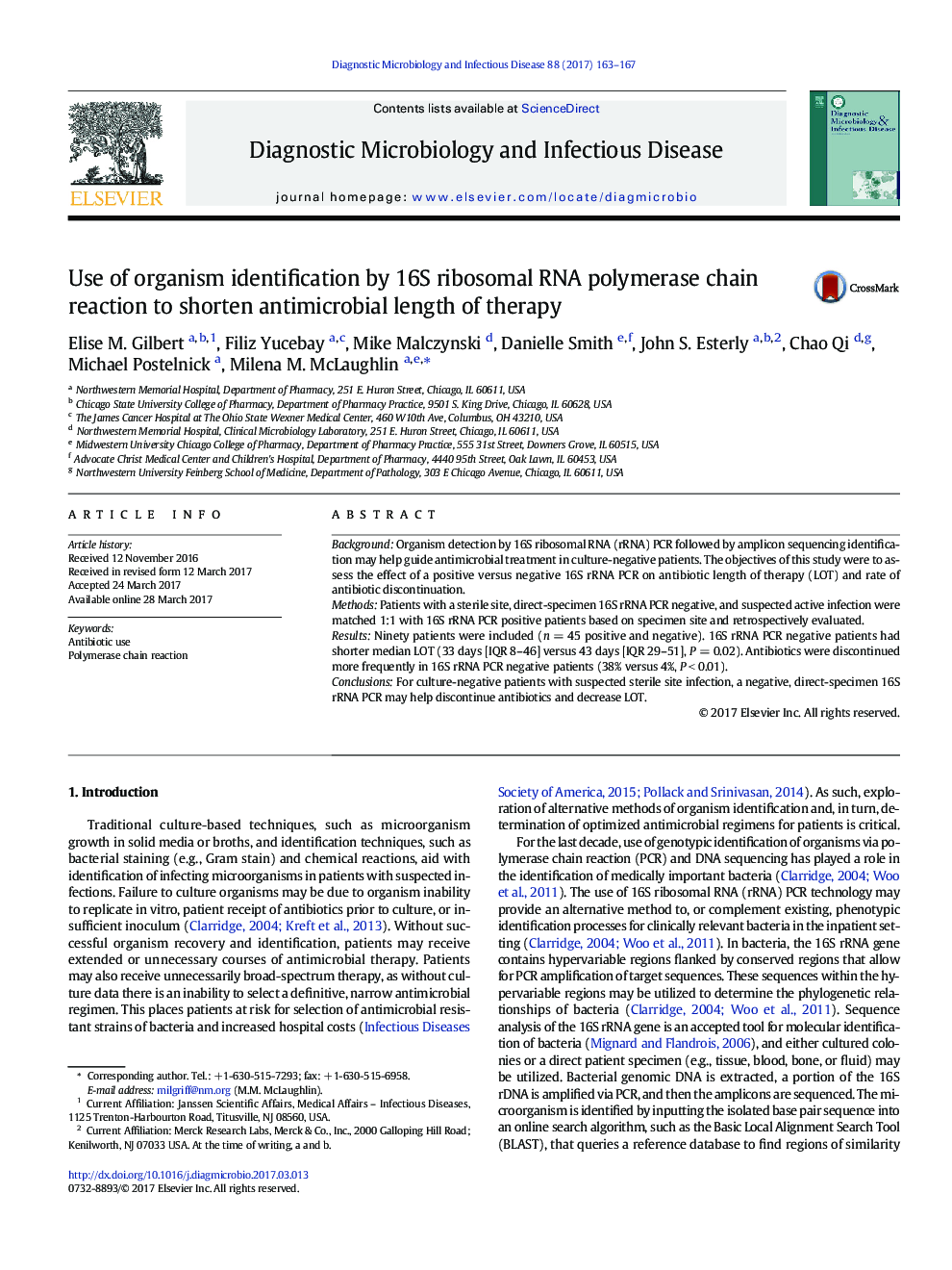| Article ID | Journal | Published Year | Pages | File Type |
|---|---|---|---|---|
| 5665849 | Diagnostic Microbiology and Infectious Disease | 2017 | 5 Pages |
BackgroundOrganism detection by 16S ribosomal RNA (rRNA) PCR followed by amplicon sequencing identification may help guide antimicrobial treatment in culture-negative patients. The objectives of this study were to assess the effect of a positive versus negative 16S rRNA PCR on antibiotic length of therapy (LOT) and rate of antibiotic discontinuation.MethodsPatients with a sterile site, direct-specimen 16S rRNA PCR negative, and suspected active infection were matched 1:1 with 16S rRNA PCR positive patients based on specimen site and retrospectively evaluated.ResultsNinety patients were included (n = 45 positive and negative). 16S rRNA PCR negative patients had shorter median LOT (33 days [IQR 8-46] versus 43 days [IQR 29-51], P = 0.02). Antibiotics were discontinued more frequently in 16S rRNA PCR negative patients (38% versus 4%, P < 0.01).ConclusionsFor culture-negative patients with suspected sterile site infection, a negative, direct-specimen 16S rRNA PCR may help discontinue antibiotics and decrease LOT.
